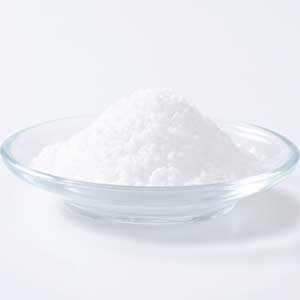
News
Jul . 28, 2024 01:11 Back to list
Zinc-Enriched Micronutrient Fertilizer Producer for Enhanced Crop Growth and Soil Health Solutions
Zinc Micronutrient Fertilizer Manufacturers Importance and Impacts on Agriculture
Zinc is one of the essential micronutrients required for plant growth and development. Despite being required in trace amounts, its significance cannot be overstated. A deficiency in zinc can lead to stunted growth, poor crop yields, and even total crop failure. As a result, zinc micronutrient fertilizers have become critical tools for farmers and agricultural producers worldwide. This article delves into the role of zinc, the importance of zinc micronutrient fertilizer manufacturers, and how they contribute to sustainable agriculture.
Zinc plays a pivotal role in several physiological and biochemical processes in plants. It is a component of various enzymes and proteins that facilitate metabolic activities, including photosynthesis, protein synthesis, and the regulation of growth hormones. Additionally, zinc is vital for maintaining the structural integrity of plant cell membranes. When plants lack this essential micronutrient, symptoms such as chlorosis—yellowing of leaves—and necrosis—death of plant tissue—can manifest. These deficiencies not only impact plant health but also result in diminished crop quality and quantity, affecting food security.
Given the critical role that zinc plays in plant nutrition, the demand for zinc micronutrient fertilizers has surged. Manufacturers of these fertilizers are essential in ensuring that crops receive the right amount of this microelement. They produce various formulations, including zinc sulfate, zinc oxide, and chelated zinc, tailored to meet the diverse requirements of different soils and crops. These manufacturers employ cutting-edge technology and research to create effective products that improve the efficiency of zinc utilization by plants.
zinc micronutrient fertilizer manufacturer

Zinc micronutrient fertilizer manufacturers must adhere to strict quality control measures and industry regulations to ensure the safety and efficacy of their products. The formulation of zinc fertilizers can vary widely, each having specific strengths and weaknesses. For example, while zinc sulfate dissolves readily in water and is quickly accessible to plants, zinc oxide has a lower solubility. As such, understanding the soil's current zinc levels and considering the crop's specific needs are essential for optimum application.
Moreover, as sustainability becomes increasingly important in agriculture, the role of zinc micronutrient fertilizer manufacturers is evolving. They are not just focused on creating fertilizers but are also engaging in practices that promote sustainable agriculture. This includes integrating organic practices, developing slow-release formulations to reduce runoff and leaching, and combining micronutrients with other fertilizers to enhance overall nutrient efficiency. By doing so, they help farmers reduce environmental impact while maximizing crop productivity.
The collaboration between zinc micronutrient fertilizer manufacturers and agricultural researchers is crucial for innovation. Research and development activities focus on understanding the interaction between zinc and other nutrients and how different environmental conditions affect zinc availability in the soil, thereby enabling manufacturers to produce more effective products. Furthermore, educating farmers on the proper use and application of these fertilizers is essential for maximizing benefits and minimizing wastage.
In summary, zinc micronutrient fertilizer manufacturers play a vital role in modern agriculture by providing products that enhance plant growth and crop yields. Their efforts not only contribute to addressing micronutrient deficiencies but also promote sustainable farming practices that are increasingly important in today’s world. By advancing product formulations and fostering partnerships with researchers and farmers, manufacturers are essential for fostering a healthier and more productive agricultural landscape. Ensuring that plants obtain adequate zinc will continue to be fundamental to achieving food security and promoting sustainable agricultural practices in the future.
-
Polyaspartic Acid Salts in Agricultural Fertilizers: A Sustainable Solution
NewsJul.21,2025
-
OEM Chelating Agent Preservative Supplier & Manufacturer High-Quality Customized Solutions
NewsJul.08,2025
-
OEM Potassium Chelating Agent Manufacturer - Custom Potassium Oxalate & Citrate Solutions
NewsJul.08,2025
-
OEM Pentasodium DTPA Chelating Agent Supplier & Manufacturer High Purity & Cost-Effective Solutions
NewsJul.08,2025
-
High-Efficiency Chelated Trace Elements Fertilizer Bulk Supplier & Manufacturer Quotes
NewsJul.07,2025
-
High Quality K Formation for a Chelating Agent – Reliable Manufacturer & Supplier
NewsJul.07,2025
